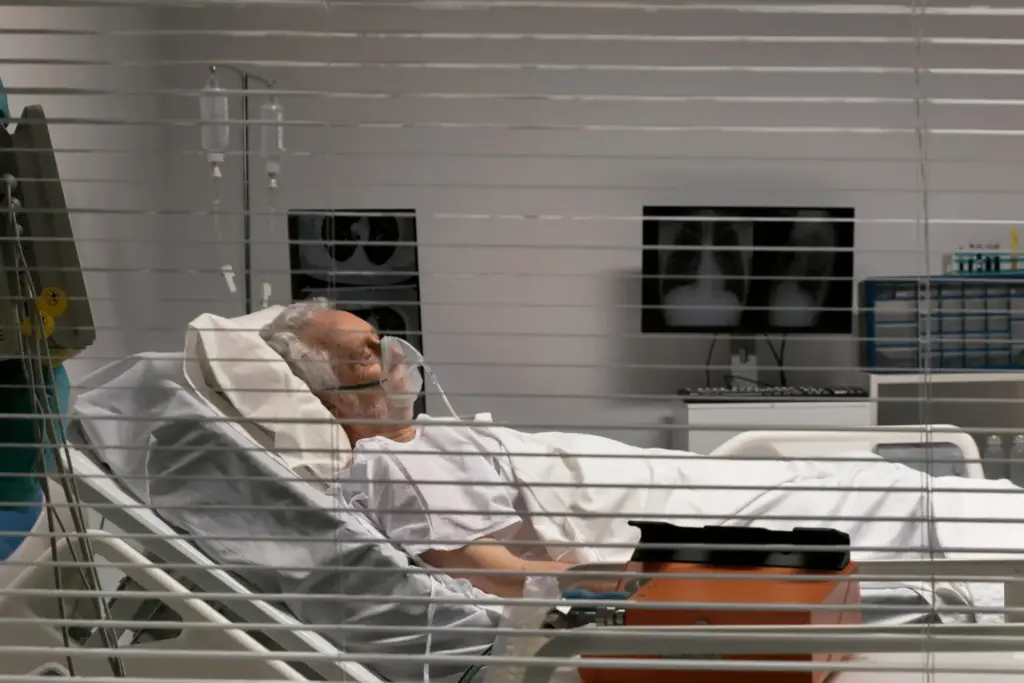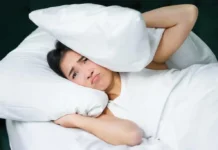Have you ever found yourself in a state of sleep but felt completely awake? This sensation characterizes an episode of sleep paralysis. During these episodes, individuals may encounter hypnopompic or hypnagogic hallucinations, which can manifest as sensory, aural, or visual experiences.
Essentially, during sleep paralysis, you find yourself unable to speak or move as you transition between wakefulness and sleep. While it may be an unsettling experience, rest assured that it is generally safe, with most individuals only encountering it once or twice in their lifetime.
Symptoms of sleep paralysis:
- A sensation of presence in the room
- Awareness of being awake but unable to talk, move, or open your eyes
- Feeling as though something is exerting pressure on you
- Overwhelming fear
- Sleep paralysis episodes typically last for a few seconds but may persist for several minutes.
Causes of sleep paralysis:
When muscle movement becomes temporarily restricted during the waking or falling asleep process, sleep problems occur. This phenomenon keeps you in a sleep-like state while your brain remains active.
Although the exact causes of sleep paralysis remain unclear, they may be attributed to:
- Jet lag
- Changes in sleeping patterns
- Narcolepsy
- Post-traumatic stress disorder (PTSD)
- Panic disorder
- Generalized anxiety disorder
- Family history of sleep paralysis
Symptoms of sleep paralysis:
The indications of excessive daytime sleepiness encompass:
- Sensation of limb paralysis
- Inability to articulate words
- Feeling of suffocation
- Hallucinations
- Overwhelming fear, panic, and helplessness
- Tightness in the throat
- Daytime sleepiness, potentially indicating narcolepsy
When should I consult a doctor for sleep paralysis?
If you occasionally experience brief periods of inability to move or speak when falling asleep or waking up, it may be isolated, recurring excessive daytime sleepiness, often not requiring treatment. However, consulting a doctor is advisable if anxiety about these symptoms arises. Additionally, seeking medical advice is recommended if these symptoms disrupt your sleep and lead to daytime exhaustion.
Factors Influencing Sleep Paralysis
Sleep paralysis is remarkably common and can affect even those who typically experience normal sleep patterns. It has been associated with various conditions, including heightened stress, excessive alcohol consumption, sleep deprivation, and narcolepsy.
Complications
While sleep paralysis is not life-threatening, it can be an unpleasant experience, often leaving individuals with feelings of anxiety after an episode.
Diagnosis
Medical professionals confirm or rule out sleep problems after a thorough examination. To determine whether symptoms align with excessive daytime sleepiness, your doctor may inquire about:
- Frequency of sleep paralysis occurrences
- Onset of sleep paralysis
- Sleep-related factors, such as sleep duration
- Medical history
- Presence of mental health disorders
- Family history of sleep paralysis
If a sleep disorder is suspected, your healthcare professional may recommend testing. Possible tests include:
- Overnight sleep study (polysomnogram): Monitors heartbeat, respiration, and brain activity, aiding in the observation of sleep problem episodes or the identification of conditions like sleep apnea.
- Multiple sleep latency test (MSLT): Evaluates the speed of falling asleep and sleep quality during daytime naps, helping identify conditions like narcolepsy, a leading cause of sleep paralysis.
Treatment for Sleep Paralysis
Many individuals with sleep paralysis do not require treatment. However, addressing underlying issues such as insomnia or anxiety may offer relief. Treatment options may involve:
- Adjusting sleep patterns to ensure six to eight hours of sleep per night
- Taking antidepressants as directed to regulate sleep cycles
- Addressing mental health concerns that contribute to sleep problems
- Treating underlying conditions like narcolepsy
For narcolepsy-related sleep paralysis, medications such as tricyclic antidepressants, SSRIs, or Xyrem (sodium oxybate) may be recommended. Additionally, cognitive-behavioural therapy can help individuals develop coping mechanisms for sleep problem episodes.
Preventing Sleep Paralysis
While it’s challenging to prevent sleep paralysis entirely, certain precautions can reduce the risk. Strategies include:
- Improving sleep quality by maintaining a consistent sleep schedule
- Creating a conducive sleep environment with minimal noise and darkness
- Avoiding electronic devices before bedtime
- Engaging in relaxing activities like bathing, reading, or listening to calming music before sleep.
Facts and Common Questions From Patients

Sleep paralysis is a fascinating and sometimes frightening phenomenon that can leave you feeling helpless and vulnerable. It’s when you’re conscious but unable to move or speak, often accompanied by hallucinations. While it can be a scary experience, it’s important to remember that sleep paralysis is harmless and usually goes away on its own within a few minutes.
Here are some facts about sleep paralysis:
- It’s more common than you think: Up to 8% of people experience sleep paralysis at least once in their lifetime.
- It’s often triggered by changes in sleep patterns. Lack of sleep, stress, anxiety, and certain medications can all increase your risk of experiencing sleep paralysis.
- It’s not dangerous. While it can be scary, sleep paralysis won’t harm you physically.
- It usually doesn’t last long. Most episodes of sleep paralysis only last for a few seconds or minutes.
Commonly Asked Questions:
What does sleep paralysis feel like?
People describe sleep paralysis in different ways, but some common symptoms include:
- Feeling paralyzed and unable to move or speak
- Feeling pressure or constriction in your chest
- Hearing strange noises or seeing hallucinations
- Feeling intense fear or panic
What causes sleep paralysis?
The exact cause of sleep paralysis is unknown, but it’s thought to be related to a temporary malfunction in the way your brain transitions between sleep and wakefulness. During REM sleep, your brain usually paralyzes your muscles to prevent you from acting out your dreams. It’s believed that sleep paralysis occurs when you become aware of your surroundings while you’re still in this paralyzed state.
How can I prevent sleep paralysis?
There’s no guaranteed way to prevent sleep paralysis, but there are some things you can do to reduce your risk, such as:
- Getting regular sleep and maintaining a consistent sleep schedule
- Avoiding stress and anxiety
- Limiting alcohol and caffeine intake
- Seeing a doctor if you have a sleep disorder, such as narcolepsy
What should I do if I experience sleep paralysis?
If you experience sleep paralysis, the most important thing is to stay calm. Try to relax your muscles and focus on your breathing. Remind yourself that it’s a temporary and harmless experience. Don’t panic or try to fight the paralysis.
The more you resist, the longer the episode may last. If you can, try to wiggle your fingers or toes. This can sometimes help to break the paralysis. If you’re having trouble breathing, try to focus on slow, deep breaths.
If you’re experiencing hallucinations, try to remind yourself that they’re not real. Once the episode is over, avoid getting out of bed right away. Give yourself a few minutes to fully wake up before getting up and moving around.














